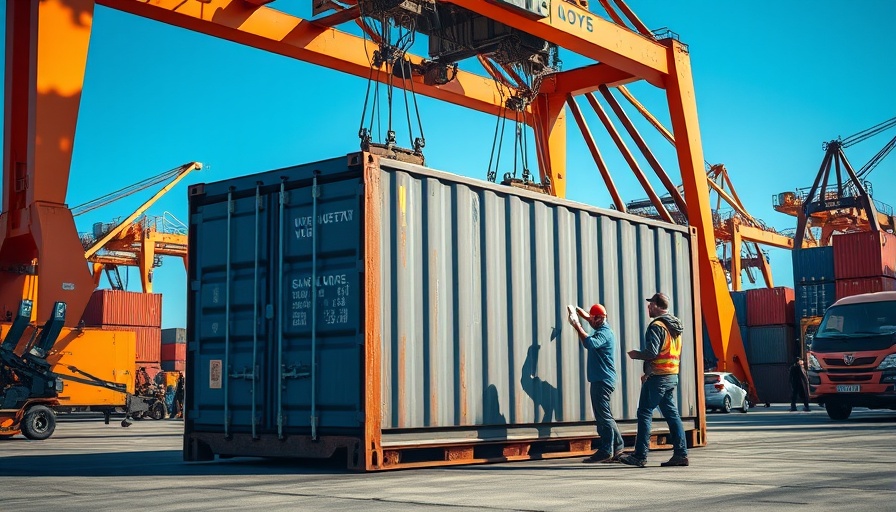
Understanding Recent Inflation Trends: A Spike and a Dip
In April 2025, inflation saw a notable retreat with the consumer price index (CPI) recording a 2.3% increase from the previous year. This marks the lowest inflation level since February 2021, indicating a significant easing compared to the tumultuous period of skyrocketing prices driven by the pandemic. Essential items such as groceries and gasoline have shown a decline in prices, offering a momentary relief to consumers overwhelmed by previous spikes.
The Role of Tariffs in Future Inflation
However, while current reports present positivity, economists are cautious about future trends. According to Mark Zandi, chief economist at Moody's, the ongoing tariffs imposed during President Trump's administration are likely to reactivate inflationary pressures once again. Zandi is expecting to see these effects reflected in the CPI reports for May 2025. As tariffs effectively function as taxes on imports—costs that businesses typically pass on to consumers—the average American household might be in for an additional financial burden.
What Do Tariffs Mean for Your Wallet?
The tariffs currently affecting the market may cost families an average of $2,800 in the near term, per a report from Yale Budget Lab. As consumers witnessing a semblance of relief may soon face higher costs for goods due to these tariffs, it raises a crucial question: how can individuals prepare for potential fluctuations in their financial landscape?
Strategies for Navigating Changing Prices
For consumers looking to manage their finances amidst these changes, a few strategies can help navigate the evolving economic environment. First, assessing personal budgets to prepare for potential price increases on essentials such as groceries and gas can create a financial buffer. Additionally, considering ways to cut costs—perhaps by reducing discretionary spending—can help. Lastly, staying informed on economic trends could empower consumers to make informed decisions on purchasing and saving.
Conclusion: Staying Proactive in an Uncertain Economy
While April 2025 has brought a momentary relief from inflation, it is vital for individuals to remain proactive. Understanding the market's complexities, including the long-term implications of tariffs, can better prepare households for potential economic turbulence ahead. As we navigate through these critical times, putting financial plans into motion can serve as a safeguard against impending shifts.
 Add Row
Add Row  Add
Add 




 Add Row
Add Row  Add
Add 

Write A Comment